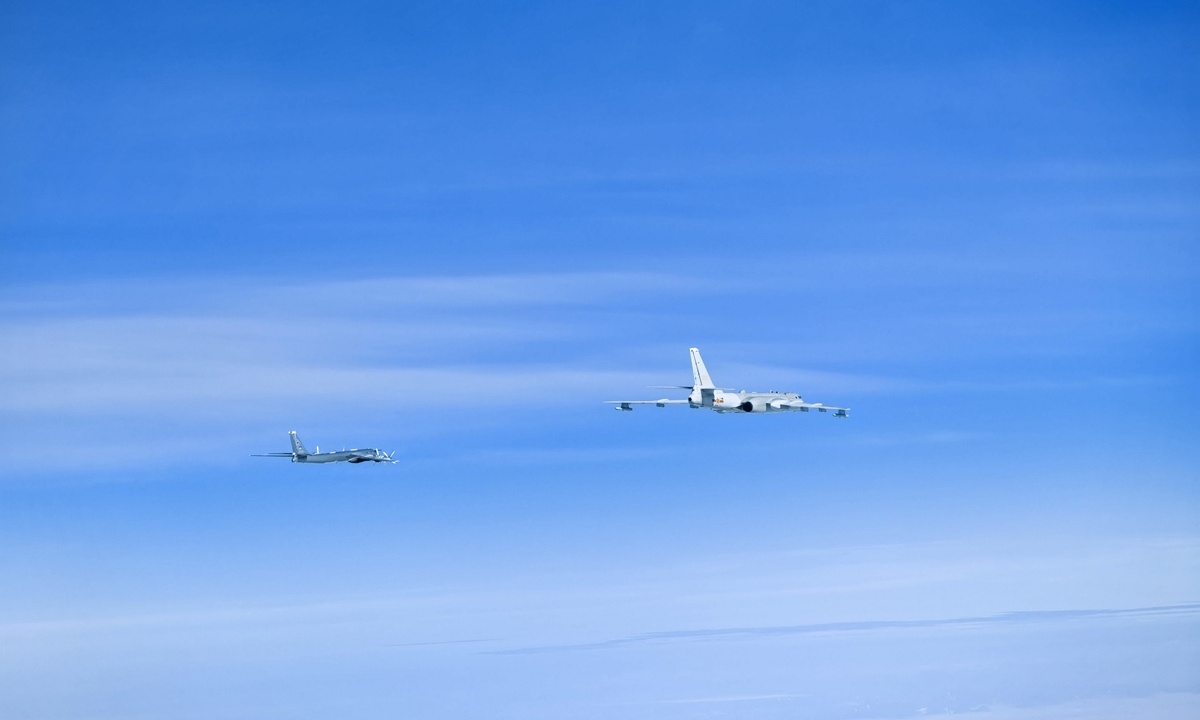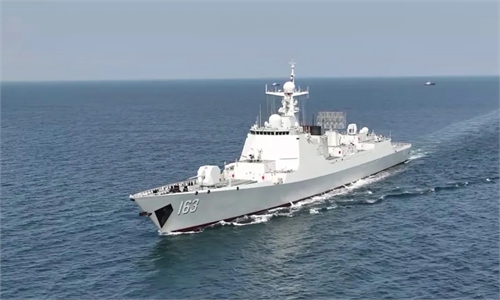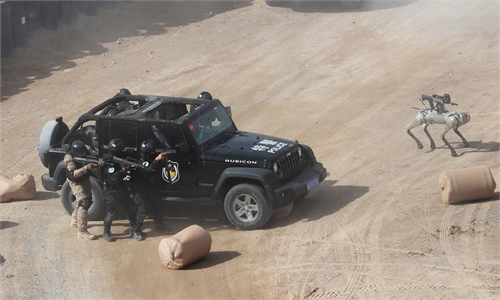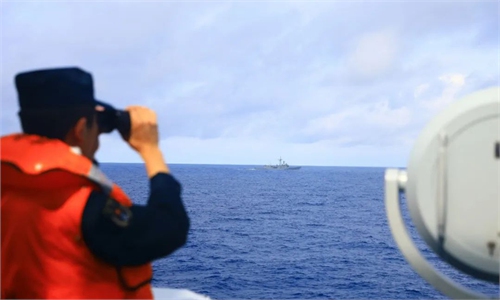
A China-Russia air force bomber formation flies over the Bering Sea on July 25, 2024 in the eighth joint aerial strategic patrol by the Chinese and Russian militaries. Photo: Courtesy of the PLA Air Force
China and Russia on Thursday held their eighth joint aerial strategic patrol that saw bombers of the two countries flying over the Bering Sea for the first time, also marking the farthest place Chinese bombers have reached in a strategic patrol mission, experts said.
According to an annual cooperation plan between the Chinese and Russian militaries, the two sides organized a joint aerial strategic patrol over the Bering Sea on Thursday, Senior Colonel Zhang Xiaogang, a spokesperson from China's Ministry of National Defense, confirmed with the Global Times at a regular press conference on Thursday.
This is the eighth joint aerial strategic patrol between the two militaries since 2019, which further tested and enhanced the two air forces' interoperability, and deepened the two countries' strategic mutual trust and pragmatic cooperation, Zhang Xiaogang said.
The operation does not target any third party, conforms to international law and practices, and is not related to current international and regional situations, the spokesperson said, when asked if the joint patrol was a response to the Pentagon's recently released 2024 Arctic Strategy that hyped China-Russia cooperation in the Arctic.
Zhang Xiaogang's remarks came after the North American Aerospace Defense Command (NORAD) said it detected two Russian Tu-95 and two Chinese H-6 bombers operating in the Alaska Air Defense Identification Zone on Wednesday local time, but remained in international airspace and did not enter US or Canadian sovereign airspace, according to US media reports.
This is the first time a China-Russia joint aerial strategic patrol has featured a patrol over the Bering Sea. Previous patrols have covered regions including the Sea of Japan, the East China Sea and the West Pacific.
Zhang Xuefeng, a Chinese military expert, told the Global Times on Thursday that the latest China-Russia joint aerial strategic patrol marked the first time Chinese bombers have reached an area near Alaska, and also the farthest place Chinese bombers have reached in a strategic patrol mission.
Through constant upgrades, China's H-6 bombers have achieved significant capability boosts. They can now carry long-range missiles that can launch strikes against land and maritime targets out of hostile interception range, Zhang Xuefeng said.
In a joint aerial strategic patrol in November 2022, Chinese aircraft landed in Russia and Russian aircraft landed in China.
Citing this previous experience, Zhang Xuefeng assessed that in the latest mission, the Chinese bombers likely took off from Russian territory, which is closer to North Pacific waters. He said that Chinese and Russian air force task forces have reached a high level of interoperability in terms of command, coordination, communications and logistics support.
Before the bombers' patrol, Chinese warships have cruised in the North Pacific, according to both Chinese and US official releases.
In a recent event, the US Coast Guard said that it came across four Chinese military ships in international waters in the Bering Sea north of the Amchitka Pass in the Aleutian Islands, the AP reported on July 12.
In response, Zhang Xiaogang, the Chinese Defense Ministry spokesperson, told the Global Times on Thursday that the Chinese warships recently carried out regular training activities aimed at boosting and testing combat capabilities without targeting any country.
Chinese warplanes' and warships' operations conformed to international law and practices, as they did not enter US sovereign airspace or territorial waters, another Chinese military expert, who requested anonymity, told the Global Times on Thursday.
If the US feels uncomfortable seeing a Chinese military presence on its doorstep, it should get used to it, or reflect on its own military presence on China's doorstep, which poses much greater security concerns to China, the expert said.
The China-Russia joint aerial strategic patrol closely followed a joint naval patrol that stretched from northern Pacific waters to the South China Sea and a joint naval exercise in waters off China's southern coast earlier this month, with experts highlighting the growing China-Russia military cooperation and its contribution to peace and stability through providing global strategic balance.




